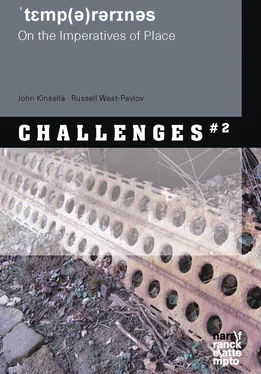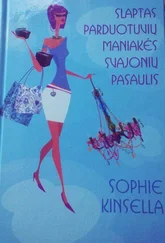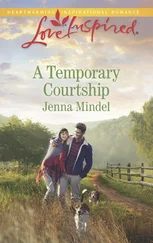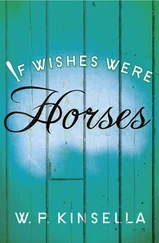RWP
2015/16 Journal Extracts III
24/5/2016 Rosewood, Schull
Two walks today! Getting active again.
First walk—Colla Road loop.
Second walk—highlands loop with Tracy who came along to study the plants of the hedgerows (which she is writing about). She managed to identify every species she examined. I took particular delight (as did she) in the flowering hawthorn trees (apparently, even indifferent local farmers avoid ploughing too close to hawthorn trees in order not to disturb their roots and consequently The Others).
•
During the first walk I considered how to rethink the post-World War II ‘rethinking’. How to think around Deleuze and Guattari’s rhizome, how to think beyond the ‘tree’, outside The One, and also how to recognise and respect Adorno’s observations regarding art and Auschwitz. If we extend the living ‘tree’ metaphor and metonym we might look more to a contribution of the graft and the leaf’s vascular system and its temporariness re life and its vulnerability to damage and occupation by ‘parasites’. The assault on the lifespan of a leaf by totalitarianism and other ideological forces, as well as by the cadre units of control, is a disturbing poetics of human abuse of fellow humans and life in general. I have deep concerns over D & G’s stand on ‘these’ things. However, François Dosse (2013) in Gilles Deleuze and Félix Guattari: Intersecting Lives , approaches some of the complexities in this way:
Philosophy must not encounter historical tragedy and remain unarmed. On the contrary, it must affirm its function. ‘Of course, there is no reason to believe that we can no longer think after Auschwitz, and that we are all responsible for Nazism.’ (see Deleuze and Guattari 1994: 106) But the shame of being human, which Primo Levi expressed blindingly well, remains. We are not necessarily responsible individually, but Nazism sullies us all. ‘There is indeed catastrophe but it consists in the society of brothers and friends having undergone such an ordeal that brothers and friends can no longer look at one another or at themselves without feeling a sense of ‘weariness’, perhaps ‘mistrust’’. After Auschwitz, we can no longer claim the candor of the Greeks. (Dosse 2013: 520)
However, I think we all do have responsibility regarding Nazism if we have knowledge or had knowledge of the ‘western world’ or were part of (or are ) ‘The West’ and haven’t acted to the contrary, but also I think that if we do not refute such a metaphysics and philosophy in general in the light of this (self)knowledge, we are game-playing with horror and catastrophe. So much of the dialogue centres on the personal desires and egoism of the players—their loves, the affronts they receive or perceive, the enforcement of their belief system/s. D & G resisted ‘stratification’ of systems and yet they deployed their ‘war machines’ to renegotiate the spatial terms of engagement on a very pragmatic level (micro and macro). In other words, in their post-Nietzschean world, they indulged themselves. Collaboration as indulgence is undesirable to me and a desiring stratagem for them—all openings and enveloping, all enterings and releases. It’s a form of drinking alcohol and smoking cigarettes. It’s desire for the ‘attractive brunette’ and the enjoyment of recognition, even if one puts a humble face to Badiou and his Maoist’s intrusion into your seminar.
On the first page of his conclusion, Dosse (2013: 519) writes:
Between 1969 and 1992, the year of Guattari’s death, two authors with very different backgrounds, personalities, and sensibilities collaborated on an exceptional oeuvre. During this long period, a “disjunctive synthesis,” or collaborative arrangement of enunciation—a term they defined in a portentous way in their first article, published in 1970, on Klossowski—functioned well. It was an improbable marriage of the orchid and the wasp.
‘Collaboration’ can mean any interaction we care to configure—positive or negative or both, or something else entirely (indefinable in affect). I have worked with poets who have ‘uncollaborated’—removed material (of theirs) from the collaboration to use in other contexts (fine, I am okay with that)—‘cannibalise’ as Tom Raworth called his excision of material from a collaborative text in the mid 90s. I have encountered collaborators who deny the agency or existence of the other collaborating party, or have/show a loss of faith in the collective outcome/work. Other collaborations have dwindled and gone silent after having great energy and zest, though I find these often eventually ‘reboot’ and have new life and fresh direction; others remain incipient or work on a ‘small scale’ (a few fragments maybe) never to go further, and for the moment to be what it was.
So collaboration becomes a personal anchoring against winds of creative change, slippage in personal interactions, and the drives of text itself. Having collaborated with many different practitioners, I ultimately collaborate with the idea of ‘art’ as a generative means of facilitating conversation and making an extra(mural) creativity. My friendships often form in the nexus and matrix of collaboration. I—we—find ourselves as we exist in relation to each other, the text, and versions of ‘the world’ (abstract, conceptual, empirical). The third party rises without prejudice, we hope. How activist can these interactions be?—different intentions pull against the desire for personal (specific) outcomes. It/they so often eludes the pragmatic. The activist notions of the collaborative break down and we are left holding fragments of our intention(s).
•
As I was walking the Colla loop, I was thinking about my childhood fascination with things military (the very fascination that led me to pacifism)... And I’ve decided to write a sequence of poems entitled ‘War Games’ that deal with this (extending from ‘Army Surplus’—a recent poem). I will start with the notion of the ‘fort’—its implications in life and language
•
International regionalism is a manifestation of ‘artistic’ collaboration.
Polysituatedness is subliminal collaboration through psycho-geographic co-ordinates.
•
These walks aren’t overlays but grafts (see note 1 below) onto pre-existing notions of place and pre-determined understandings (come from observation and participation) of place. I do not add ‘palimpsests’ to the walk from other walks. But I obviously walk informed by my experiences of the same walk, other walks, my general knowledge of walking, and things a priori . Rather, I call this ‘grafting’—I graft all I am onto the walk as it happens, and also afterwards. This grafting makes a narrative thread that is both linear and Möbius. Continuous and infinite. Adding and flowing. It does not build ‘up’ but ‘along’. The points on the loop are approaching the infinite even if they cannot be infinite (ecological damage prevents this). I count syllables as I walk. I memorise and memorialise with the markers of my tread.
•
Watched a wren in the hedge near Town Park today—lively!
•
Note 1: A graft over the top of, say, exposed flesh—a skin graft—is not a palimpsest but a removal and addition to create continuation. To fuse with what is (left) there to become one with and not just a patch or a cover(ing).
Evening walk up to the top of Ardmanagh and back. Examining the ‘skin’ of a foxglove flower I thought of the organicism of graft, of the restoration and repair and recovery of graft, and the growth and repair of the poem. I also thought about the materials to make the graft—where they come from, the effect on the source, the damage and cost of graft: of phonemes and morphemes, of syntax and utterances. The ‘all’ the poem takes in its growth, its becoming the leaf (of the book, on the tree—metonym and metaphor).
Читать дальше












